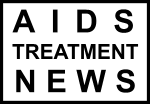All 251,287 WikiLeaks "Cablegate" cables have now been released (apparently by opponents of Assange). They are searchable, and 'HIV' is mentioned in 1534 of them. While 107 cables are tagged 'HIV', many other relevant cables are not.
Several specialized search engines will search this huge archive for whatever you want. We used www.CableDrum.net for this article. (Apparently the full text of the cables is indexed in Google, though not in Bing.)
To try CableDrum yourself, visit the site and type HIV into the "Search text" box, then click the Search button. A search might take half a minute or so, but then you should see the Subject of the first 25 of the 1534 cables containing 'HIV'. To read the full text of the cable, click the "Reference ID" on the left of the Subject line.
For this article we decided to look at two issues:
- What was the U.S. reaction as it became clear that Australia was doing much better than the U.S. in AIDS prevention -- apparently due mainly to very different policies on needle exchange?
- How did the U.S. embassies see PEPFAR (President's Emergency Fund for AIDS Relief), the outstandingly successful U.S. program to make AIDS treatment available on a large scale to poor countries that otherwise had very little access?
Australia and Needle Exchange
"[Needle exchange programs] have played a vital role in helping prevent the spread of blood-borne illnesses in Australia, according to Paul Dessaur of WASUA. 'In Australia, for instance, the rate of HIV amongst injecting drug users is less than 1 percent, and that is unheard of, and it's purely because we introduced these programs way back in 1986,' he said." [2012, www.cdcnpin.org/scripts/display/NewsDisplay.asp?NewsNbr=59528]We don't have a comparable U.S. figure for the infection rate among IDUs, but it is probably well over 10 times higher.
Our search for HIV and Australia as tags found nothing. A search for:
HIV Australia
in the full text found 79 cables. Most of them were unrelated, so we tried:
Australia hiv "syringe exchange"
with no result. But:
Australia hiv "needle exchange"
found one result, www.cabledrum.net/cables/09MOSCOW3072, which is relevant (one of only two we've found so far). It described Russia's chief medical officer as "positive about needle exchange
programs, saying that they were proving effective."
Searching for
Australia "needle exchange"
(no need to mention HIV) found 7 results, including the above, plus another relevant cable (www.cabledrum.net/cables/09UNVIEVIENNA64), also dated 2009, referred to the "new USG [United States Government] position: support for needle exchange programs as a method to prevent the spread of HIV/AIDS, and for medication-assisted therapy as part of a comprehensive treatment protocol against narcotic addiction, and continued USG opposition to the term 'harm reduction'."
What we have not yet done is to read through all the cables mentioning just "needle exchange", "syringe exchange", or with a tag HIV (about 150 cables in all), to find anything that may be relevant.
But already it seems fairly clear already that there is no acknowledgement or discussion of Australia's success with needle exchange anywhere in the text of the 251,287 cables obtained by WikiLeaks. Any such cable would almost certainly include the word 'Australia', and either 'needle exchange' or 'syringe exchange', and we checked all of those cables.
PEPFAR Success
Our work on this search is less complete. Much more remains to be done.There is no tag for 'PEPFAR' (which seems odd), but the word appears in 587 of the cables. The next step might be to read all places where 'PEPFAR' appears in these cables, to see what is interesting. This would exclude the cable about checking whether the 20 telephones in a new PEPFAR office were working correctly -- and those with only general statement of good intentions, such as:
"USG-Nigeria PEPFAR team submitted the 2010 annual Country Operation Plan (COP) to the Global AIDS Coordinator January 29. The plan builds a partnership for sustainability with the Nigerian Government to continue strengthening ongoing service delivery to patients; renew focus on health systems strengthening; and align activities with the Nigerian National Strategic Framework for HIV-AIDS, 2010-2015. The Plan will also intensify and focus prevention efforts; deepen integration of HIV-AIDS response into the broader health care system; strengthen the health care system at all levels; and expand access to quality services. USAID's proposed FY2010 PEPFAR budget is 249.9 million dollars."
The Surprise
What most surprised us is the lack of perspective in the diplomatic world -- how little attention and actual thinking concern HIV, an epidemic that has killed tens of millions of people including half a million in the U.S. Vastly more attention goes into the drug war -- a shooting war which, in its current form, started a century ago in the U.S., and has been a continuous failure ever since. It still has no victory in sight, only more of the same. The basic flaw may be the same as in other U.S. shooting wars -- the lack of any sane or real mission, since the actual purpose of the war is to create financial opportunities for corporations, contractors, careerists, and other well-placed special interests.A fundamental problem is that perspective and thinking are dangerous in diplomatic (and other government or corporate) careers; those who think may not last. In theory the thinking will be done at higher levels, but the system is too corrupt for that. So major institutions proceed like zombies, decade after decade and century after century, with results that we see every day.

0 comments:
Post a Comment